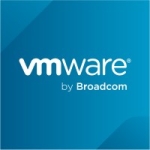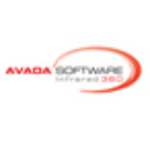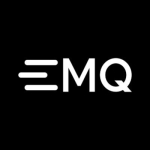We provide a channel that we call "the link," so we are distributors of numbering services. These links are connected to a simulator, for example, when MQ is related to some application or the scanner. It's a synchronized communication where we first check two-step authentication. So first, we start with the authentication. In the second step, the MQ server provides the connection. Then the system decides if it can make the connection or not. For example, if I'm uploading something, it will check one cluster, not the other five. So next time, I'm just checking to see if we can connect. After that, the other side is also checking. Those clusters are physical connectivity clusters.
We are sending everything. The partner and we create an acknowledgment number and check to see if everything is fine or not. Once everything checks out and we have verified the person with our partner, we establish the connection, sending a message. Then we are also checking the permissions and format. Sometimes there are some errors, so we have to check the login acknowledgment number and figure out what the error code means. We are handling everything for the project, from the code and deployment to support. We are handling everything through an RFP repository. So from there, we are handling every version released in the last two years. Every year, we upgrade according to the guidelines.
There are so many good things with IBM MQ networking. So many complicated issues arise when you're trying to configure your network, and MQ helps by providing the clustering. In our project architecture, we have a cluster that distinguishes between major requests from applications. There is also a centralized cluster. Let's suppose 10 applications are connecting to that cluster. In each application, we add differently.
If I need to add multiple features to the centralized cluster, we can create another cluster. From there, the GMG is connected. Also, clusters can provide a backup. So suppose this solution faces some failure, like a power outage, MQ can automatically redistribute the load to other servers.
We are using the synchronizer and another module in our product. We are stepping the connection from the IBM channel. After that, we can send or receive any message. This is synchronizing. We are handling the clustering, and we have created a design for how the NP is built with the partner.
IBM is still adding some features and coding some other systems on the security end. However, it has the most security features I've seen in a communication solution. Security is the most important thing for our purposes.
Sometimes, there are network issues, which means more applications are connected to those messages, so I would like to fix that. For example, suppose there's a new network, and I want to add virtual memory to address a network issue within the cluster. So there is a network issue that needs to be resolved from the cluster. So I need to add the permissions for that particular team or particular time. There are many complications with IBM MQ servers.
I've been using IBM MQ since last year.
We don't use IBM support much. Sometimes partners will come to us with questions, so we just guide them. Sometimes, you need an MQ person because they have access. We guide the customer to ask this question. You have to ask the MQ entity or the entry person. They will help you. And we are not writing any protocols because a separate team does that. And also, if anything goes wrong with the MQ product, then IBM will address that.
From a coding perspective, it's a straightforward process. There are no complications. We cannot directly access the IBM server because there is a separate team assigned to do some security and get some code of conduct from the MQ team. They are handling the MQ server. So we ask them to create these entry servers to discuss that. And also, we are defining everything. We are responsible for handling invalid queries. So they recreate a wrong question or wrong to them. So, whatever is an appropriate question.
In terms of maintenance, there are three reasons you'll get a maintenance window. On the maintenance window, we are just restarting the epicenter. Nothing else. If it requires any patching or updates, we perform those. But you don't have to restart the application. The epicenter typically runs continuously.
I rate IBM MQ seven out of 10. It's a good option for anything banking-related where you need secure communications. There are some other similar products out there, but I'm not about other servers. But I'm aware of our BME. So if you're doing banking or anything that requires secure channels, I would recommend IBM MQ.


















